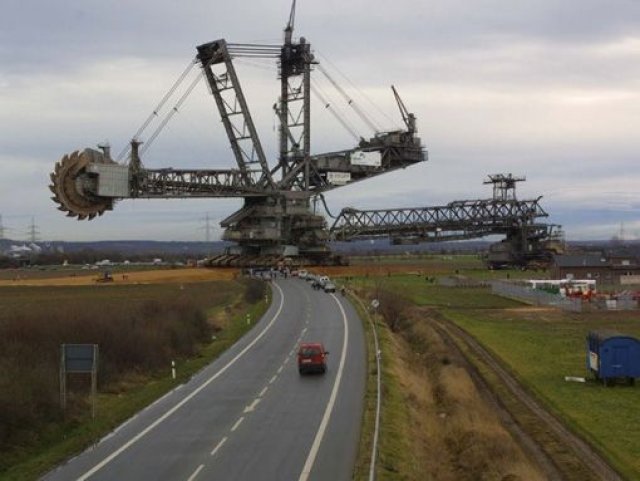
In a unanimous decision on September 27, the Queensland Court of Appeal rejected the challenge by environment group Coast and Country to the proposed GVK Hancock Alpha coalmine.
The appeal was lodged in October last year. Hancock Coal Pty Ltd and the Queensland Minister for Environment and Heritage, were respondents at the hearing on June 7.
The Alpha coal project is a coalmine and railway project sited 40 kilometres north-west of the town of Alpha in Queensland’s Galilee Basin. The $6.9 billion project is jointly owned by Gina Rinehart’s Hancock Coal and Indian conglomerate GVK.
In this landmark case, it was put to the court that the global impact on climate change of the burning of coal mined in Queensland should be considered in the approval process. This followed a previous ruling in the Supreme Court in September last year which acknowledged that emissions from the burning of coal were relevant in the assessment of coalmines in Queensland.
The Court of Appeal dismissed the challenge citing an earlier Land Court finding that it would “not detrimentally affect global greenhouse gas emissions” because Asian power stations would simply buy coal elsewhere if the mine were blocked.
Coast and Country’s Derek Davies said: “We opposed the approval of this mega-mine because it will contribute to dangerous global warming. The coal from the Alpha mine will exacerbate harm to our natural ecosystems such as the Great Barrier Reef, which earlier this year suffered an unprecedented and devastating coral die-back caused by global warming.
“Today’s court decision fails to overcome the nonsensical claim made by the Queensland government and GVK Hancock that there will be no decrease in global carbon emissions if the Alpha coalmine does not proceed because another mine will be developed somewhere else in the world to fill its place.
“The Alpha coal mine proposes to pump a massive 60 million tonnes of carbon pollution into our atmosphere each year. The mine’s emissions exceed those of entire countries, including Finland, Norway and Ireland.
“Today’s decision spells trouble for the Great Barrier Reef. Coast and Country will carefully review the decision and consider our options regarding an appeal.”
Jo-Anne Bragg, CEO of Environmental Defenders Office Queensland, which presented the case for Coast and Country, said: “On behalf of our client we presented three judges in Queensland’s Court of Appeal with a highly specific legal case about how the impacts in Queensland from the burning of coal from this mine are to be assessed under Queensland law.
“Our client said, as a matter of law, the impact of the burning of fossil fuels from the Alpha mine should not be disregarded, or given zero weight, because other mines may cause similar impacts if the Alpha mine is refused.
“The argument that coal from other mines would replace the environmental damage of Alpha coal if it did not go ahead is known as the ‘substitution argument’. It is used by coalmines to avoid responsibility for the consequences of their actions. We said, as a matter of law, they are responsible for the consequences of their actions, regardless of what others may do.
“Our client was disappointed in the decision. They are here to clarify the law regarding the protection of the Great Barrier Reef and environment through the legal system. We will carefully read the judgment to see the reasoning of the Court of Appeal. Legal costs incurred by Hancock GVK and the Queensland Government were awarded against Coast and Country.”
Last month a report, The Sky’s Limit: Why the Paris Climate Goals Require a Managed Decline of Fossil Fuel Production, was published by Oil Change International. It found:
- The potential carbon emissions from the oil, gas and coal in the world’s currently operating fields and mines would take us beyond 2°C of warming.
- The reserves in currently operating oil and gas fields alone, even with no coal, would take the world beyond 1.5°C.
- With the necessary decline in production over the coming decades to meet climate goals, clean energy can be scaled up at a corresponding pace, expanding the total number of energy jobs.
On the basis of these findings, the report recommended:
- No new fossil fuel extraction or transportation infrastructure should be built, and governments should grant no new permits for them.
- Some fields and mines — primarily in rich countries — should be closed before their resources are fully exploited and financial support should be provided for non-carbon development in poorer countries.
- This does not mean stopping using all fossil fuels overnight. Governments and companies should conduct a managed decline of the fossil fuel industry and ensure a just transition for the workers and communities that depend on it.
The environment movement has consistently mounted strong legal challenges against new coal mines in recent years. This is testing the limits of the current legal framework.
However, in the light of recent court decisions, it is apparent that existing laws are biased in favour of mining companies, supported by Commonwealth and state governments.
The movement needs to demand urgent action by governments, backed by a strong legal system, along the lines of the above recommendations to meet the goals set at the Paris Climate Change Conference.
[Margaret Gleeson is a member of the Socialist Alliance.]
Like the article? Subscribe to Green Left now! You can also like us on Facebook and follow us on Twitter.